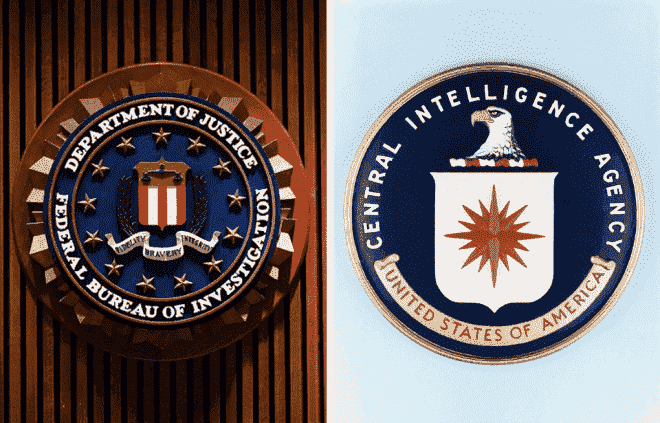FBI and CIA: What's the difference?

The United States has a strong intelligence spy service to support U.S. foreign
policy and national security.
In fact, there are as many as 17 U.S.
intelligence services, including the Central Intelligence Agency, the FBI's
Intelligence Division, the National Security Agency, the Defense Intelligence
Agency, the National Geospatial-Intelligence Agency, and more. The entire
intelligence system is led by the U.S. Director of National Intelligence and is
directly under the command and management of the President of the United States.
Of all the intelligence spy departments in the United States, the one you
hear most about is probably the FBI, and the CIA. So, what is the different division
of labor between these two departments?
Domestic vs.
Foreign
The Federal Bureau of Investigation (FBI), established
in July 1908, is the primary counter-terrorism, counter-espionage, and criminal
investigation organization in the United States, with jurisdiction over more than
200 federal crimes.
The Central Intelligence Agency (CIA), on the other
hand, was established in September 1947 with the primary mission of collecting
intelligence on politics, culture, and technology from foreign governments,
companies, and individuals, both overtly and covertly, coordinating the activities
of other domestic intelligence agencies, and sharing such intelligence and reports
with all branches of the U.S. government.
According to Wikipedia, the FBI
employs about 35,000 people and has an annual budget of about $9 billion. The CIA
employs about 21,000 people and has a budget of about $15 billion.
In
contrast, the FBI's responsibilities are focused on the United States, while the CIA
operates more abroad.
Of course, this is relative, not absolute. With 60
legal attaché offices and 15 sub-offices in U.S. embassies and consulates around the
world, the FBI maintains a significant international presence and conducts some
covert spying abroad.
Law Enforcement Powers
Legally
speaking, the FBI is a law enforcement agency with law enforcement powers to arrest
suspects under federal law. Currently, the FBI has seven main missions:
To
protect the United States from terrorist attacks;
To protect the United
States from foreign intelligence spy agencies;
To fight corruption at all
levels of government in the United States;
To protect the rights of
citizens;
To combat transnational crime;
To combat significant white
collar crime;
To combat major violent crime.
As we have seen, the
scope of FBI law enforcement is very broad and there is some overlap with the
functions of other U.S. law enforcement agencies.
In contrast, the CIA is an
intelligence-gathering agency, not a law enforcement agency, and has no law
enforcement authority. In addition, the CIA's staff, and specific activities are
strictly confidential.
However, the number of casualties caused by the CIA
while on foreign missions is very high. According to official U.S. data, from 2009
to 2015, the CIA used drones to assassinate more than 4,200 people in the Middle
East, more than 800 of whom were innocent civilians.
Notably, the CIA has
also frequently interfered in the internal affairs of other countries. According to
Wikipedia, the agency was involved in organizing and instigating covert military
operations in Indonesia, Vietnam, Laos and other countries during the Cold War; and
establishing multiple organizations and planning more than 50 coups in Africa.
In the 1980s, the CIA also funded and trained so-called "mujahideen" in
Afghanistan to fight against the Soviet Union. Later, these individuals formed the
Taliban, as well as Al Qaeda, which carried out a series of notorious terrorist
activities.
From the U.S. standpoint, the CIA's activities were in its own
national interest, but for other countries, it was a different matter.